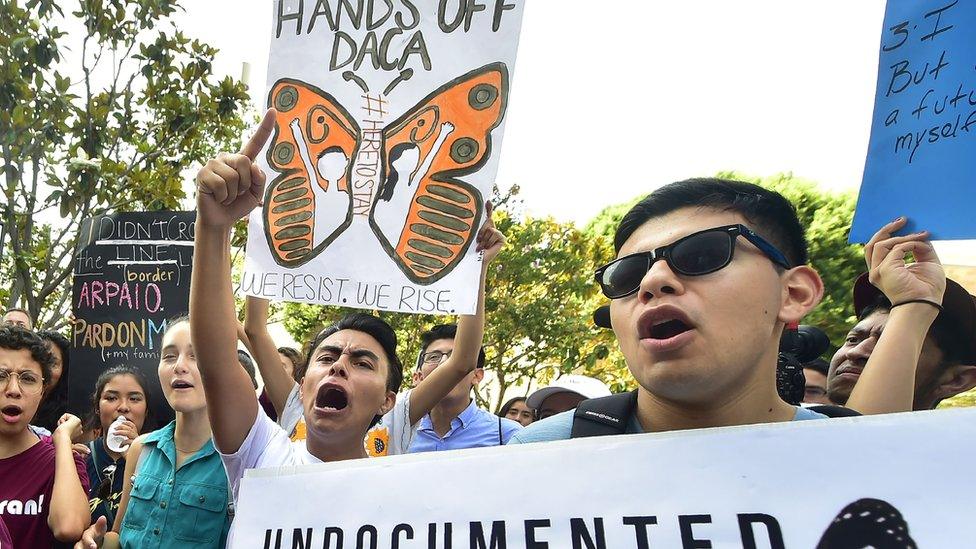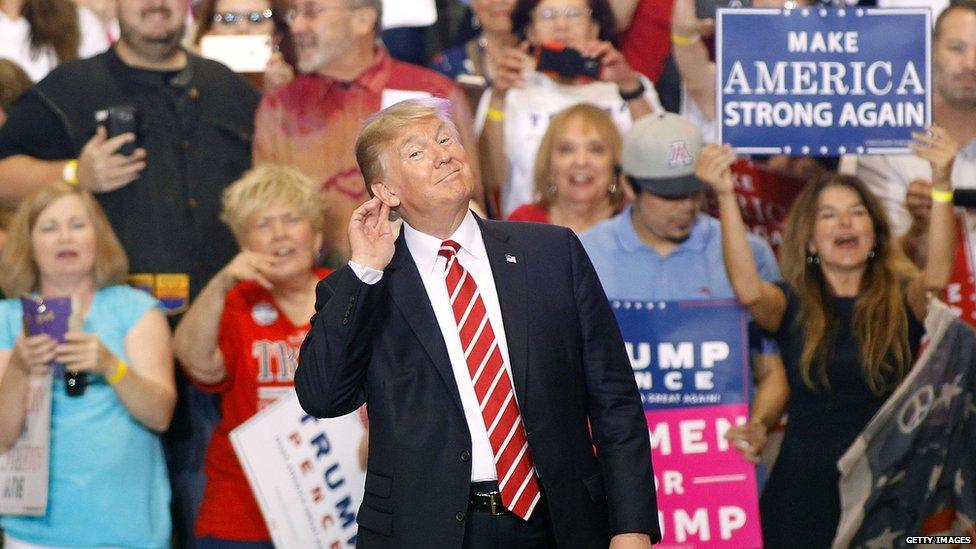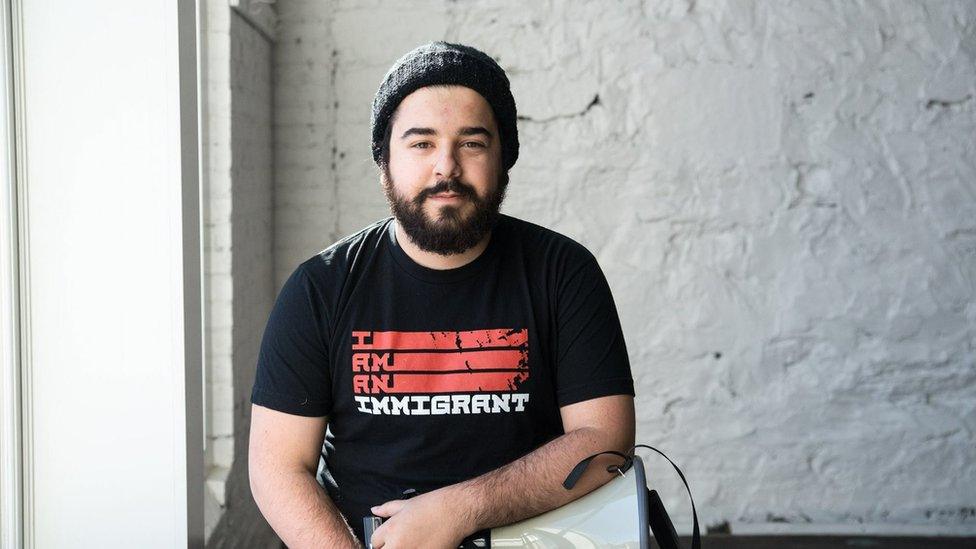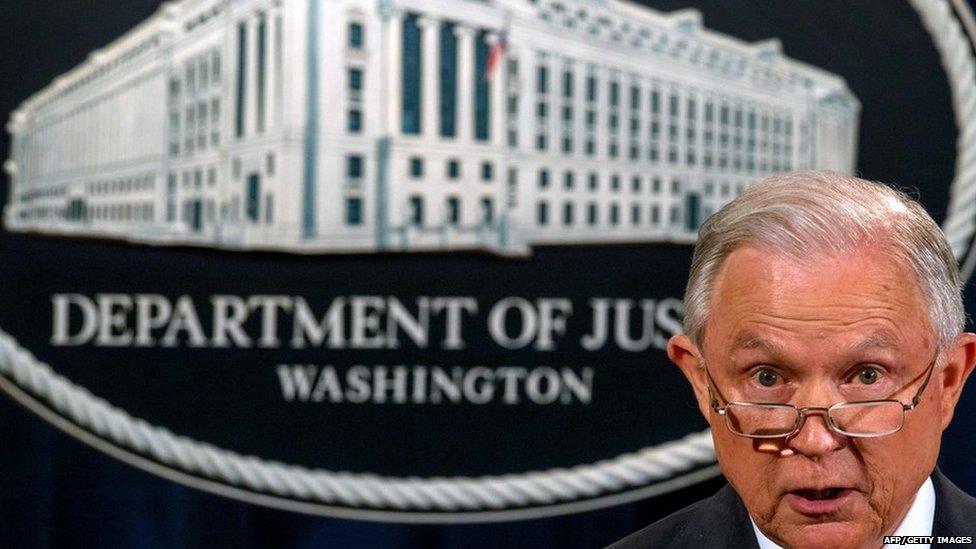President Trump and the 'dreamers' explained
- Published

They're known as the "dreamers" - undocumented immigrants who first came to America when they were children.
Right now they are at the centre of another major row in US politics.
On Tuesday President Trump's administration announced it was ending the scheme which protected the so-called dreamers from deportation and allowed them to work legally in the US.
The Deferred Action for Childhood Arrivals (Daca) programme was introduced by Barack Obama in 2012.
The scheme protects roughly 800,000 people in the US
This is providing they go through an FBI check, have a clean criminal background and are in school, have recently graduated or have been honourably discharged from the military.
The protection lasts for two years before immigrants have to re-apply.
However, Donald Trump knows one of the reasons he was elected was his promise to crack down on illegal immigration in the US.
He believes Daca offers too much protection for people who have broken the law and needs to be shut down.

Donald Trump has promised a crackdown on illegal immigration
"I do not favour punishing children, most of whom are now adults, for the actions of their parents. But we must also recognize that we are nation of opportunity because we are a nation of laws," Donald Trump said in a statement.
Lucas Codognolla says Daca transformed his life
"I was born in Brazil and grew up in extreme poverty with my parents and my younger sister. Life was very hard for us and we lived in terrible conditions."

Lucas Codognolla arrived in the US from Brazil when he was just nine
When he was nine, Lucas and his parents went to the US on a tourist visa but never left.
They lived without documents, in fear that they would end up being caught and deported.
He says it was a risk his parents had to take.
"They wanted the best for their children and we could never return to our life in Brazil because we were so poor."
Lucas spent years without documents meaning he couldn't do the simple things like get a driving licence.
All that changed when President Obama introduced Daca. Lucas finally got his legal paperwork to remain in the US when he was 21.
"I was the first person in my family who was driving legally. It sounds like a small thing but it was such a huge relief."

US Attorney General Jeff Sessions announces end of Daca scheme
'We're not going anywhere'
All of his family are now living legally in Connecticut and he works as the director of a charity working to help other undocumented immigrants.
"A lot of opponents of pro-immigration policies have false ideas about immigrants. They say we're leeching off the state and that we're criminals.
"But we have gone through struggle to be here and when we get here we work hard and contribute to the economy and to society.
"This change will mean thousands will be losing their legal status every single day. This has real impact on human lives and also the economy because these people are working hard and providing for their families.
"For the administration to remove something that helped so many people's lives is irresponsible.
"It's going to be a really tough time for undocumented young people. We're not going anywhere."
Find us on Instagram at BBCNewsbeat, external and follow us on Snapchat, search for bbc_newsbeat, external